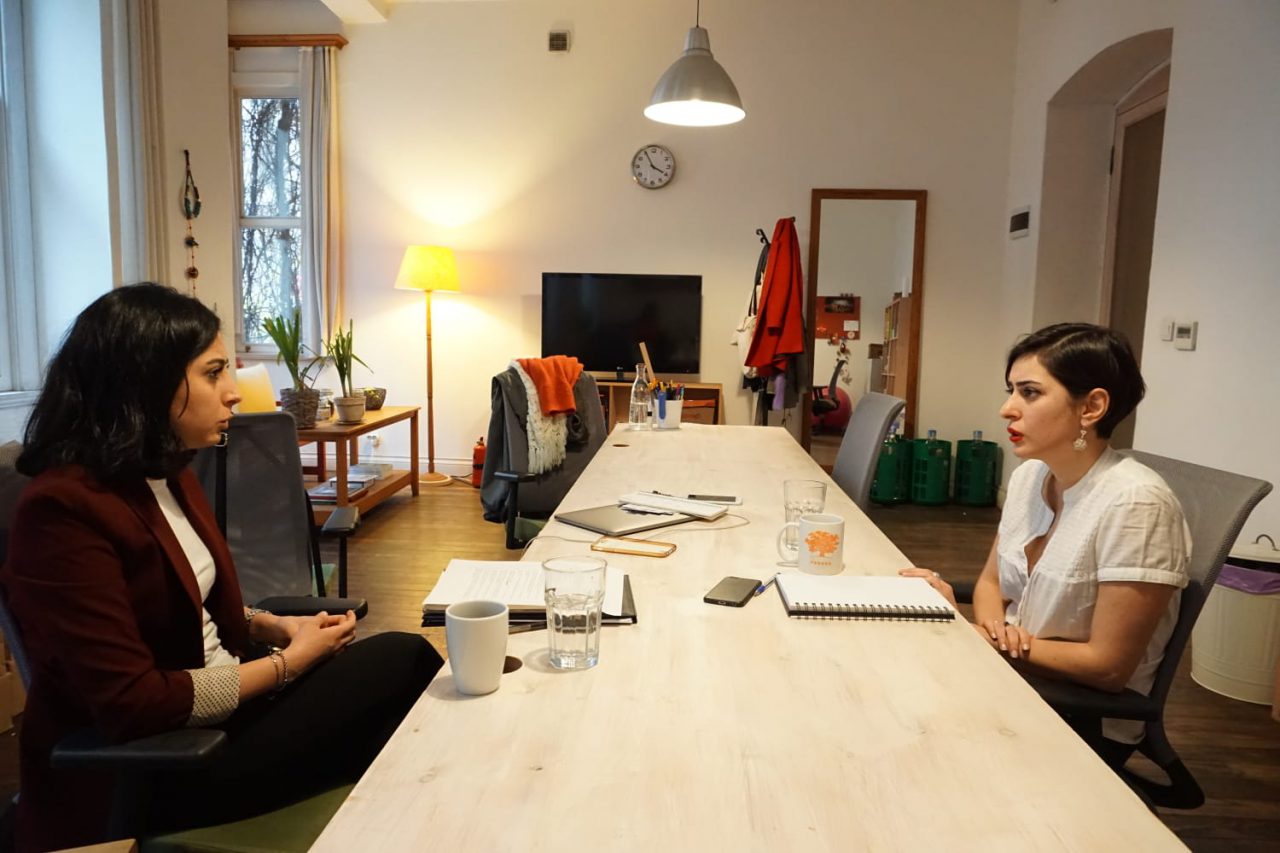İstem D. Akalp (Ashoka Turkey): “Social Enterprises Can Be The Business Models Of Today And The Future”

While we have just embraced the terms “entrepreneurship”, “enterprise” and “start-up” and begun to consider “entrepreneurship” as an honorable profession, we have discussed with Ashoka Turkey Social Entrepreneurship Programs Director İstem D. Akalp a new term that we begin to hear often in recent years: “Social Entrepreneurship”.
What does Ashoka do?
Ashoka is the first and largest social entrepreneurship platform in the world who brought out and named the term of social entrepreneurship at the very beginning. It says “You are a social entrepreneur, we will support you” to more than 3,500 social entrepreneurs in more than 93 countries of the world for the last 39 years. We support the social entrepreneurs in three main categories:
- Firstly, if they are in need, we provide them with financial support after they join in the global Ashoka network.
- Secondly, we facilitate them to provide community and network support they need. This can be the people or institutions from the business world, civil society or funder organisations that they can connect with depending on the needs of the social entrepreneur or the sector they are in relation to.
- Thirdly, we support them with what we call “capacity building supports”. We try to provide them with a number of skills that they will need in order to expand and sustain their social enterprises. We do this together with our pro-bono partners as well as our other network stakeholders.
Who is a social entrepreneur according to Ashoka?
In our view, a social entrepreneur is a person who finds an innovative solution to a deep-rooted social and/or environmental problem and commits himself to pursue his social enterprise until the system bearing the problem is transformed into good.
What is a social enterprise?
Social enterprises appear as different legal entities such as association (dernek), foundation (vakıf), company, cooperative (kooperatif), platform. Commercial enterprises of associations and foundations can also be considered as social enterprises. What we pay regard as Ashoka to call a social enterprise is to find out whether its purpose of establishment is to solve a social and / or environmental problem. Social enterprises are relatively more dynamic, more agile, more open to innovation than other actors in the civil society. In addition to their social and environmental concerns, they also care about the happiness and well-being of their employees. Social enterprises can be the business models of today and the future.
Do you think a civil society organization is called a social enterprise if it carries out commercial activity through its own commercial enterprise?
If such commercial activity is about its own mission, orientation and focus, then yes, we can call it a social enterprise. For example, if an organization working with children provides a product or service to eliminate or lighten the effects of a problem related to children, it may be called a social enterprise. Purpose of such enterprise should also be to maintain the sustainability of its activities, not to distribute profits to shareholders. In fact, it can be said that we pay regard to the motivation of the enterprise and what they do with the profit. Associations and foundations do not make a profit anyway, their all investments return to themselves, so to the social impact they generate.
How is social enterprises and private sector related to each other?
Social enterprises are rather influential for the private sector especially in the field of innovation, they inspire the private sector. For instance, there was Couchsurfing before Airbnb, and people were staying free at each other’s house. Then, Airbnb took this idea, adapted it to the present day with a profit-based model. Also, there was car sharing before Uber. Both Couchsurfing and car sharing applications used to be social enterprises initially, then the private sector turned them into profitable businesses. Therefore, what we see in our observations is that the more the private sector keeps its eye on social enterprises, the closer it gets to innovation.
How is the relationship with civil society organizations then? Do you think the social enterprises are an evolved state of civil society?
We actually say that they are “the essence”. It is because social enterprises also make effort to generate positive social impact in social and / or environmental problems and make suggestions to change policies. Social entrepreneurs supported by Ashoka, as we call “Ashoka Fellows”, have different models to transform the systems, to empower beneficiaries and propose policies to change market dynamics; and they do this in different ways, they can even change the governmental policies by 80%, because this is their mission. Their mindset is: “I will develop a model so that this model can lead to policy change at a local, national or global level. For example, I will set up a constructive model allowing farmers to access technological tools first -which is not currently in the agenda of the government- and then let this be the work of the ministry of agriculture later on.”
It is not correct to call social enterprise as an evolved state of civil society, it is not right to put one in a superior position, because both sides have much to learn from each other.
Is there a difference between the social entrepreneurship in Turkey and in the rest of the world? If we consider it from the perspective of Ashoka Fellows, which country’s profile looks the most like Turkey’s profile?
I am in Turkey’s social entrepreneurship ecosystem both professionally and voluntarily since 2009. The first Ashoka Fellow in Turkey Victor Ananias was selected in 2000, that was exactly 19 years ago. So since then, some people in Turkey know what social entrepreneurship is, they hear about it.
We think that profile of social entrepreneurs in Turkey resembles the most the social entrepreneur profile in Latin America. This is probably because of these countries generally have similar socio-economic status and conditions.
As a difference I would say: Social enterprise structure is more known in Britain, America and Canada than countries / continents like Turkey and Latin America. Not only by the state or public but also by the funder organisations, individuals, supporters, investors etc. They have social enterprises and social entrepreneurs on their agenda too. This is something that is not common in Turkey yet, especially outside Istanbul. Both the private sector and civil society need to work more, and also more together in Turkey, which we try to make it happen.
What is the biggest mistake do you think the people with a social enterprise idea fall into? Do you have any suggestions for such people with ideas?
I advise them to determine why they want to do this, what they want to change, and not obsessively fall in love with the problem or their solving methods. They need to listen, especially the beneficiaries and stakeholders in the field and use the information they get to shape their social enterprise ideas. For example, imagine someone who wants to establish a social enterprise related to children’s health but having not researched any non-governmental organization working in the field, having not looked at the products of the private sector working in the same field, nor having not talked with one of those children with the respective health problems. He just comes up with a great mobile application idea and decides to make it. This obviously does not work. It is really important to look up what worked, what did not work in the field with same problem, and why not etc. It is important to talk to the social entrepreneurs who are currently working in the field, and to get mentorship from them if necessary. It is necessary to see the problems and related issues from the inside and be open to listening about it. Our never-ending suggestion is that they should be constantly open to change and renovation.
Finally, we would like to have your views on sustainability. What do you pay attention the most to ensure sustainability in social enterprises?
The first point for us in terms of sustainability is in fact the motivation of the social entrepreneur to continue. We are working hard to maintain the initial passion of the person and in this sense, we strive to knit a support network around this person. We support them in the motivational sense if they are close to weariness at times, if their health is deteriorating or the entrepreneur starts thinking like “What am I doing? What is happening?”. If the entrepreneur is in the financial bottleneck, we bring him together with people who is competent from the business world and aim to ensure he gets enough financial support. If he does not know which step to take with his beneficiaries, we make him meet with the civil society organisation in the same field and for the same purpose he is working. Therefore, we do not look at sustainability in terms of financial sustainability only, but also consider the needs and the status of entrepreneur is in and we shape the next steps according to such needs and status.
I also believe, it is ignored in terms of sustainability that the work is not only done by the social entrepreneur, but the ecosystem itself needs to contribute to sustainability. Is not it also the case in nature? It is not just one person’s effort or the power or strength of one plant to sustain, the soil also must be suitable for sustainability. Therefore, there is much work to be done on the ecosystem as well.


Bizi Takip Edin